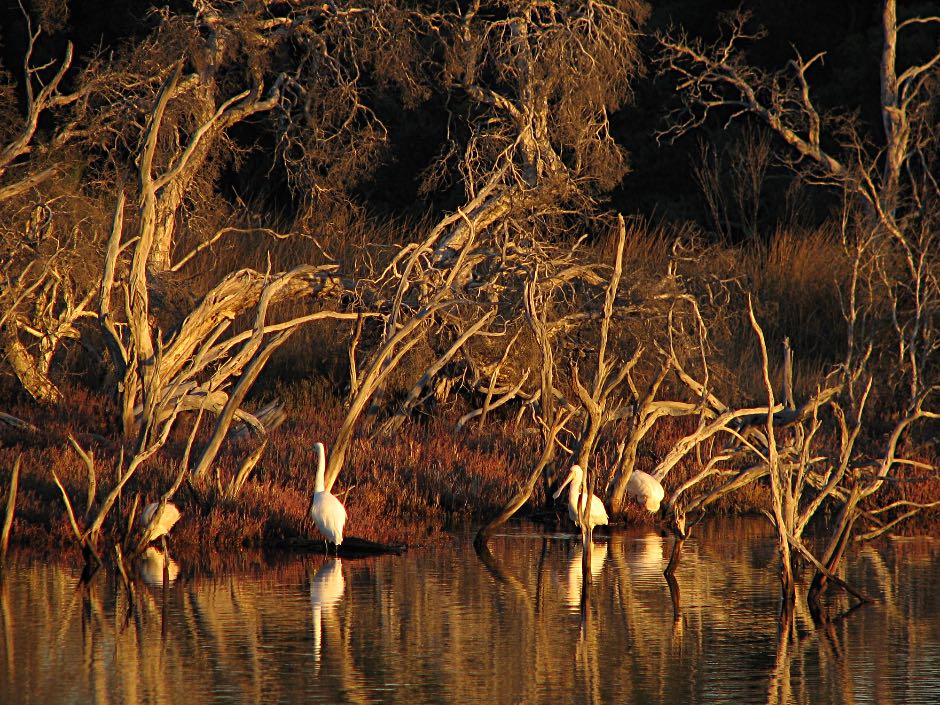
|
|
|
|
These trees have died due to climate change
|
|---|

|
A very few of the dead trees in the Len Howard Conservation Park near my home. I have discussed the causes of the tree deaths on another page on this site. |
A reality that many don't seem to want to accept: overpopulationAn even greater and more fundamental threat to our shared planet than climate change and its related problems of ocean acidification, ocean warming and sea level rise is the unsupportable number of people.
The first hurdle would be convincing most people that reducing human populations is necessary. I've written more on this subject on another page on this site.
Why do so few people care enough to take action on climate change?At the time of writing the great majority of Australians and probably educated people world-wide accepted the reality of anthropogenic climate change (climate change caused by humanity). But very few care enough to make any serious attempt to reduce the causes of climate change.Perhaps the reason for this is the same as why so few people care enough to contribute to the community in which they live; for example only 3% of Australians donate blood. Very few are willing to help maintain the beauty of their community by doing things like picking up rubbish or pulling out weeds adjacent to roads or in public parks. I've written elsewhere, if you see something wrong, don't just walk by, do something about it. We can all do something about reducing the emissions that are the main cause of climate change, but it seems that few of us bother.
I have written a piece on the psychology of climate change on another page on this site.
Facing reality is not fashionable
The fact that book shop managers place philosophy in with this non-evidence-based material is bad enough, but the small proportion devoted to philosophy is an indication of the poor critical thinking interests and abilities of the general public. Many people in the modern world, in which science has shown us so much about reality, still believe a lot that is entirely lacking in evidentiary support.
Reality or delusion?
|
|
The greatest single cause of people not accepting reality is religion in one or another of its many forms. All are entirely delusional.
John Lindsey II is getting close to the truth in the sign board on the right.
It could equally well be said that faith – the holding of beliefs without supporting evidence, or even contrary to the evidence – is the greatest enemy of reason.
If there is to be any hope for the future of the planet we must all play our part. We must change our life-styles to minimise our impact on the planet - "Walk softly on the Earth". We must not hide our heads in the sands of religion and superstition.
Ms White apparently gives credence to the Gaia concept; that there is some force in the biosphere that keeps the Earth in a state that is optimal for life. This is a point on which I have to disagree with her.
Life is ruled by it genes, and as Richard Dawkins very convincingly pointed out, genes are selfish. Plainly genes are not intelligent, they can't plan. They cannot understand that it might be best for all life, including whatever life form that a particular gene might be in, to co-operate. A gene will 'try' to look after it's own short term welfare whether that is good for all life or not (just as so many humans do, to the detriment of the planet). Therefor it seems to me that Ms White is out of touch with reality in that particular belief - as are all those who accept the Gaia hypothesis.
|
|
Related pagesRelated pages on external sites...Reality, in Wikipedia: "Reality is the sum or aggregate of all that is real or existent within a system, as opposed to that which is only imaginary."Related pages on this site...Selfishness or altruism?Overpopulation of our shared planet Contribution to our shared society Milestones in the development of human society The concept of an immortal soul is logically unsupportable Religion and other false beliefs Divining for water and minerals is nonsensical The problem and prevalence of ignorance Science, religion and delusion Don't just walk by, do something Are we seeing the beginning of the end of this global civilisation? |
|
|